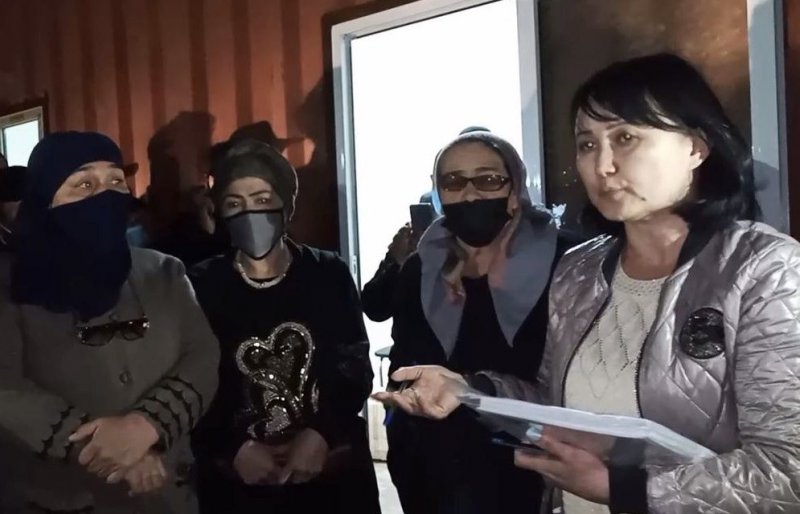Countries
Solidarity campaigns
JOINT STATEMENT REGARDING THE ESTABLISHMENT OF AN INDEPENDENT TRADE UNION IN UZBEKISTAN

On March 19, 2021, over 200 employees of Indorama Agro in the Syrdarya region of Uzbekistan held a meeting to establish the independent trade union, “Xalq Birligi” (People’s Unity), the first of its kind in the country. The documents required for formal registration of the union will be filed with the Ministry of Justice in the coming days. Xalq Birligi will be open to any employees of Indorama Agro who wish to join.
This initiative was triggered by the company’s continued failure to address numerous complaints by Indorama Agro employees relating to labour rights violations. Some workers even resorted to reporting complaints including low wages, harsh working conditions, minimal social security protections, and retaliation against complainants, to the local authorities.
In February 2021, the European Bank for Reconstruction and Development (EBRD) approved a $70 million loan to Indorama Agro, which follows a $60 million loan from the International Finance Corporation (IFC) in December 2020.
The EBRD recognises in its Environmental and Social Policy (Performance Requirement 2: Labour and Working Conditions), the right of workers to elect representatives, form or join workers’ organisations of their choosing and engage in collective bargaining. Projects are required to comply with the fundamental principles and standards embodied in the ILO Core Conventions including Conventions 87 and 98. Moreover, according to the policy, clients of the Bank “will not discriminate or retaliate against workers who act as representatives, participate, or seek to participate in such organisations or in collective bargaining, and will not interfere in the formation or functioning of worker organisations” under any circumstances. As an EBRD client, Indorama Agro is required to “inform workers that they have the right to elect workers’ representatives, form or join workers’ organisations of their choosing and engage in collective bargaining” and cannot engage in employment discrimination on the basis of affiliation to a union.
The IFC underlines that workers’ fundamental rights must be protected and failures can jeopardize a project. Protections include freedom of association without interference and the right to bargain collectively including timely engagement and provision of meaningful information by the employer. IFC Performance Standard 2. Labor and Working Conditions, prohibits Indorama Agro from seeking to control a workers’ organization, or engage in retaliation and discrimination. The PS 2 Guidance Note explains that “forms of discrimination or retaliation would include demoting or re-assigning workers, as well as outsourcing or shifting work among facilities, in response to union activities.” Further, the Guidance Note states that “Clients should also provide access for representatives of workers’ organizations to the workers they represent. Workers should be free to meet and discuss workplace issues on the premises during scheduled breaks, and before and after work. Furthermore, workers should be allowed to choose representatives to speak with management, inspect working conditions in an appropriate manner and in a way that does not disrupt productivity, and carry out other organizing activities.”
We underline the binding nature of the standards. In the context of the Uzbek cotton sector, IFC and EBRD will need to be proactive in upholding the requirements and ensure swift remediation of any violations.
Registration of this new independent union is an important test for Uzbekistan’s revised “Law on Trade Unions,” which came into force in March 2020. The reform effort was meant to bring Uzbekistan’s legal code in compliance with its international obligations to protect the rights to freedom of association and collective bargaining. In 1992, Uzbekistan ratified ILO Convention 98 on the Right to Organize and Collective Bargaining which clearly states that “workers shall enjoy adequate protection against acts of anti-union discrimination in respect of their employment.” Moreover, according to ILO Convention 87 on Freedom of Association and Protection of the Right to Organize, ratified by Uzbekistan in 2016, “public authorities shall refrain from any interference which would restrict this right or impede the lawful exercise thereof.”
We therefore call on:
- the Government of Uzbekistan to uphold its commitments to implement ILO Conventions 87 and 98, ensure timely registration of Xalq Birgili and take immediate and decisive measures to prevent retaliation against union members and organisers;
- the EBRD and IFC to ensure that Indorama Agro respects the rights of its workers to form an independent union and to take immediate and decisive measures to prevent retaliation against union members and organisers;
- Indorama Agro to enter into good faith negotiations with the Xalq Birligi’s democratically elected leadership to resolve worker concerns and to take immediate and decisive measures to prevent retaliation against union members and organisers.
Signed
Defenders in Development Campaign
Global Labor Justice – International Labor Rights Forum
The American Federation of Labor and Congress of Industrial Organizations (AFL-CIO)
International Accountability Project (IAP)
Bennett Freeman, Co-Founder, Cotton Campaign
Source: Uzbek Forum For Human Rights
